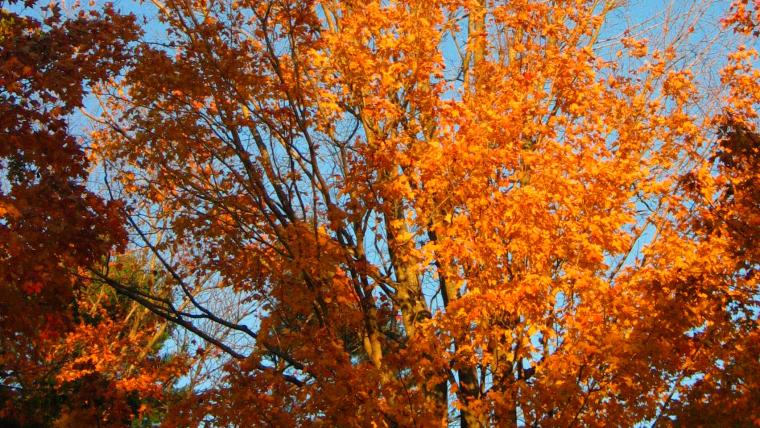
In a nutshell
The concentration of populations in towns and cities is an important driver of global change -- urbanization alters land use and connectivity, creates pollution and changes water and nutrient cycles, and changes species compositions by favoring exotics and altering interactions between species. Our understanding of how plant phenology is impacted by urbanization is still limited. While several studies have looked at the relationship between urbanization and plant phenology in the spring season, few have focused on fall phenology. The authors combined plant phenology observations contributed to Nature’s Notebook with two other phenology datasets and data products collected by satellite-borne sensors to estimate the timing of brown down of leaves (senescence) for 93 plant species across the United States and Europe. They then looked at the effects of human population density and temperature on the timing of leaf senescence and growing season length.
The authors found that both warmer temperature and urbanization resulted in a delay in plant senescence. The effect was different in warmer and colder regions; in cold regions, urbanization was associated with later leaf senescence and a longer growing season while in warm regions, urbanization was associated with earlier leaf senescence and a shorter growing season.
What is special about this study?
This study included on-the-ground phenology data collected by three different phenology networks – USA-NPN, the National Ecological Observatory Network, and the Pan European Phenology Project. The authors were able to combine these datasets using the Plant Phenology Ontology, a framework which facilitates analysis across datasets. The Plant Phenology Ontology holds potential for many more studies combining datasets across the globe to better understand changes in plant phenology.
What does this mean for YOU?
This study has implications for the ecosystem services that plants provide such as carbon sequestration, which is the uptake of carbon dioxide by plants that occurs during the growing season. As urbanization increases and temperatures warm further with climate change, we may see more areas that experience shorter growing season length. This means less time for plants to uptake carbon each year, which could have cascading impacts on the global carbon cycle.
Citation: Li, D., Stucky, B.J., Baiser, B., and Guralnick, R. 2021. Urbanization delays plant leaf senescence and extends growing season length in cold but not in warm areas of the Northern Hemisphere. Global Ecology and Biogeography. doi.org/10.1111/geb.13429.